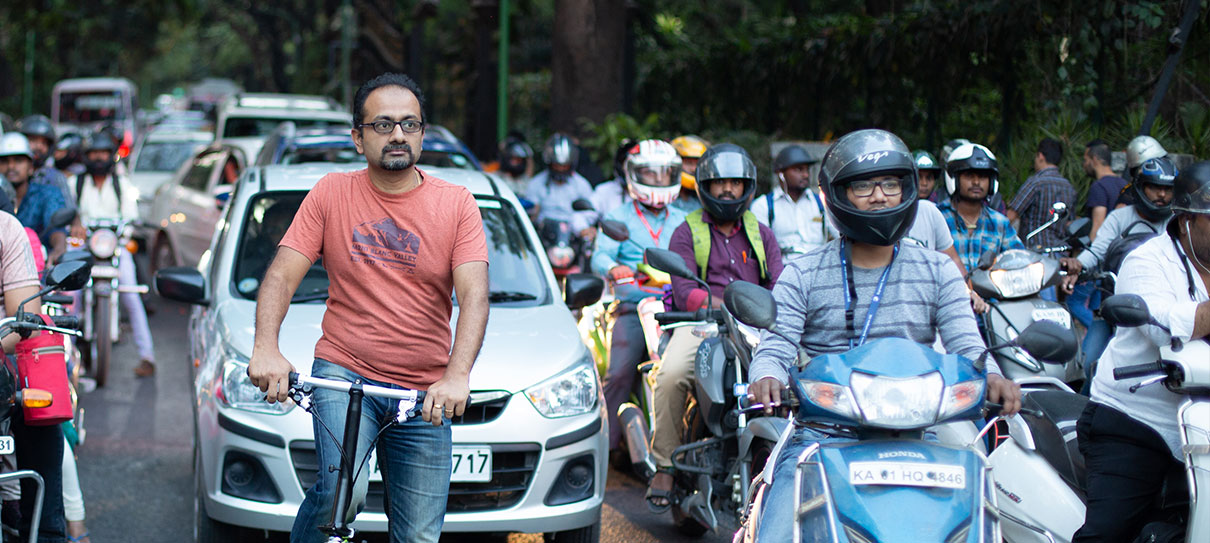A collaboration with the St John’s Research Institute

Bengaluru, April 5, 2019: The launch ofHealthy Air Coalition Bengalurukicked off with an inaugural ceremony held at the St. John’s Research Institute, Koramangala. Bruhat Bengaluru Mahanagara Palike (BBMP) Additional Commissioner for Public Health, Mr. D. Randeep inaugurated the launch, highlighting the Coalition’s network of 40 air quality-monitoring devices installed across the city.
The Coalition is a unique platform led by experts and individuals from the health sector along with environmentalists, affected individuals and concerned citizens championing the cause for clean air in the city.
The installed air quality-monitoring network already includes monitors in 15 different locations in the city.Monitors areinstalled at the BBMP head office in Corporation Circle and across the public health care and maternity centres (PHCs & MHCs), operating under the BBMP Health Division; ateam of researchers from St. John’s Research Institute has also installed a handful of the devices.
Live air quality readings from each location is available at healthyaircoalition.org
“We are happy to support initiatives that improve air quality and enhance the quality of life in the city. Bengaluru is the first major Indian city to join the global BreatheLife Campaign, collaboration with the WHO. We are committed to improve the air quality in the city. Access to data is key in understanding air quality and the availability of data on a centralised platform that is open to the public is the need of the hour. We have extended our support to the initiative and are keen to understand the necessary interventions possible at the local level for improving the health of the public,” said D. Randeep, Additional Commissioner, BBMP.
“The coalitionis coordinated bythe Health and Environment Alliance (HEAL), in collaboration with the St. John’s Research Institute. In coming weeks, we will install the remaining devices across the city. Air pollution planning and mitigation in the country has been largely limited to improving monitoring and data collection with very little emphasis on the associated health impacts. If the data needs to translate into action, the health sector needs to step in as an important stakeholder in addressing the issue of air pollution in the city and we believe that, throughthis initiative, we will be able to prioritise public health and place it at the centre of air quality planning and mitigation in the city,”said Aishwarya Sudhir, Air Quality Program Lead, HEAL.
“Over the years, Bengaluru has seen a spike in vehicular emissions resulting in reduced lung capacity and breathing difficulties in children. The policy design and interventions on air pollution need to be geared towards reducing exposure levels of individuals and towards safeguarding the health of the citizens. With the help of the installed network of air quality devices, we hope to understand and analyse from the data the risk of exposure to air pollution in the city,” said Dr. George A. D’souza, Dean, St. John’s Medical College.
Sharing his views on the initiative, Dr. Tony Raj, Dean of the St. John’s Research Institute, said, “As an institute working on improving public health, we believe we have an important scientific role to play in guiding and informing policy that enables effective planning and implementation for improving air quality in the city. Through the Healthy Air Coalition we look forward to engaging and working closely with the concerned authorities including that of the Ministry of Health, BBMP, the State Pollution Control Board and the citizens, to translate scientific knowhow to action and reduce the risk of exposure from air pollution in the city.”
Emissions from transport remain the key culprit to poor air quality in the city along with waste burning and dust from construction and unpaved roads. In 2012, the Indian Institute of Science has estimated the vehicular population in the city to reach 68lakhs by 2020.[1]However, recent reports quoting the transport commissioner citedthat Bengaluru now has more than 80lakh vehicles.
Ashish Verma, Transport Expert and Professor at IISC, opined, “Recently, liveability has been receiving more importance due to the degradation of quality of life in metropolitan cities in India. Transport, being a major source of air pollutants, is a key culprit behind degrading quality of life of Indian cities. Therefore, it is high time that effective and scientifically based mitigation measures are put in place to reverse this trend and make our cities more liveable.”
The event was attended by Ricky Kej, Grammy Awardee and guest of honour,along with experts in the field of medicine, public health, transport and pollution abatement. The State Pollution Control Board was represented by the Senior Environmental Engineer, Mr. H. Gurumurthy.
Contact: Aishwarya Sudhir
Air Quality Program Lead
Health and Environment Alliance (HEAL)
Ph: 9986808067
Email:[email protected]
Editors Notes
Healthy Air Coalition Bengaluru is a member of Unmask My City – a global network of frontline health practitioners championing clean, safe air in our cities.
[1]A study on air pollution by automobiles in Bangalore city, M.Harish, IISC,2012

